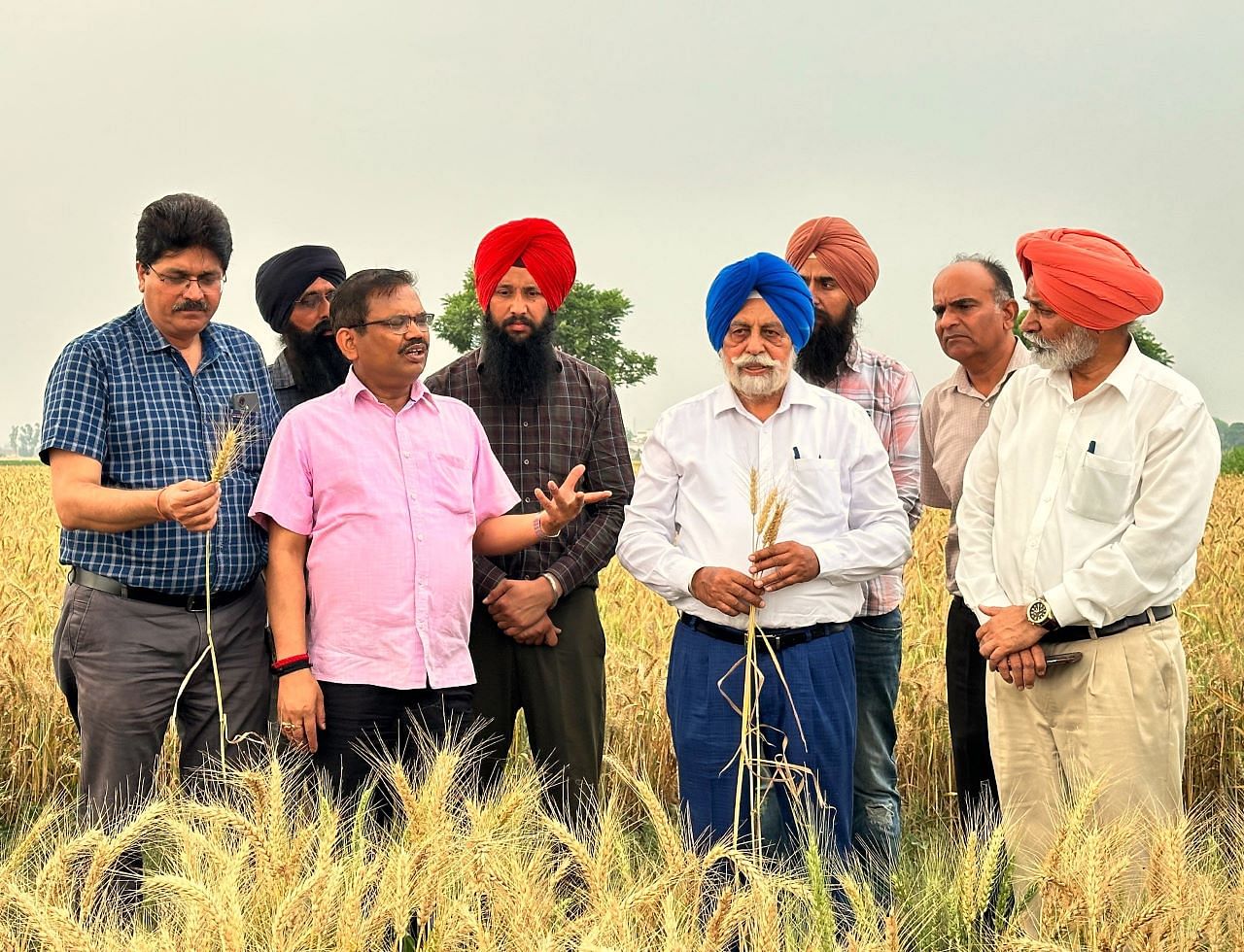
As the agricultural community in Punjab gears up for the festive occasion of Baisakhi, an important visit by KAP Sinha (IAS), the Special Chief Secretary of the Government of Punjab, to Bondli and Papraudi villages within the Samrala Block has shed light on an innovative farming technique revolutionizing wheat cultivation in the region.
The visit was specifically aimed at evaluating the performance of wheat crops sown using the Surface Seeder machine, a technology that has gained considerable attention for its potential to transform farming practices and enhance productivity.
Assessment of Crop Performance
Accompanied by a team from Punjab Agricultural University led by Vice-Chancellor Dr. Satbir Singh Gosal, KAP Sinha engaged in detailed discussions and inspected the crops alongside local farmers including S. Dilbagh Singh, S. Parminder Singh, and S. Harinder Singh. The feedback from this assessment was overwhelmingly positive, with observations noting robust crop growth, absence of common pests like aphids and yellow rust, and uniform grain development.
Benefits of Surface Seeder Technique
The Surface Seeder technique showcased exceptional uniformity in crop stand, with no issues of lodging reported. Farmers shared their experiences, emphasizing the efficiency of the Surface Seeder which allowed them to cover up to 10 acres per day using minimal diesel (3 to 4 litres per acre) and reduced inputs of urea and herbicides, thereby enhancing cost-effectiveness. Expressing satisfaction, KAP Sinha stressed the importance of disseminating such low-cost techniques and urged Chief Agricultural Officers and their teams to conduct similar visits to promote this method among farmers across different districts.
Support from Agricultural Experts
Dr. S.S. Gosal from Punjab Agricultural University praised farmers for embracing the Surface Seeder, highlighting its benefits in residue retention, soil health improvement, reduced irrigation and herbicide usage, robust root development, and early crop emergence. The method also aids in weed control, including the management of gulli danda (Phalaris minor).
Dr. Gosal urged farmers to adopt this eco-friendly and cost-effective method, emphasizing its potential to boost soil health, increase carbon content, and enhance overall yields. The technique not only streamlines agricultural processes but also eliminates the need for a prolonged gap between paddy harvest and wheat sowing, reducing irrigation cycles.
Earlier, Dr. Ajmer Singh Dhatt, Director of Research at PAU, briefed KAP Sinha on the Surface Seeder Technique, emphasizing its simplicity and cost-effectiveness. This approach conserves water, shields crops from heat stress, and importantly, discourages the harmful practice of rice straw burning, aligning with sustainable agricultural practices.
PAU has identified over 200 adopters of the Surface Seeder across 22 districts in Punjab, facilitating further field visits and seminars to encourage wider adoption among farmers. Dr. Harshneet Singh from KVK Samrala reiterated the importance of embracing PAU technologies, offering ongoing support and guidance to farmers interested in adopting these innovative methods.
















